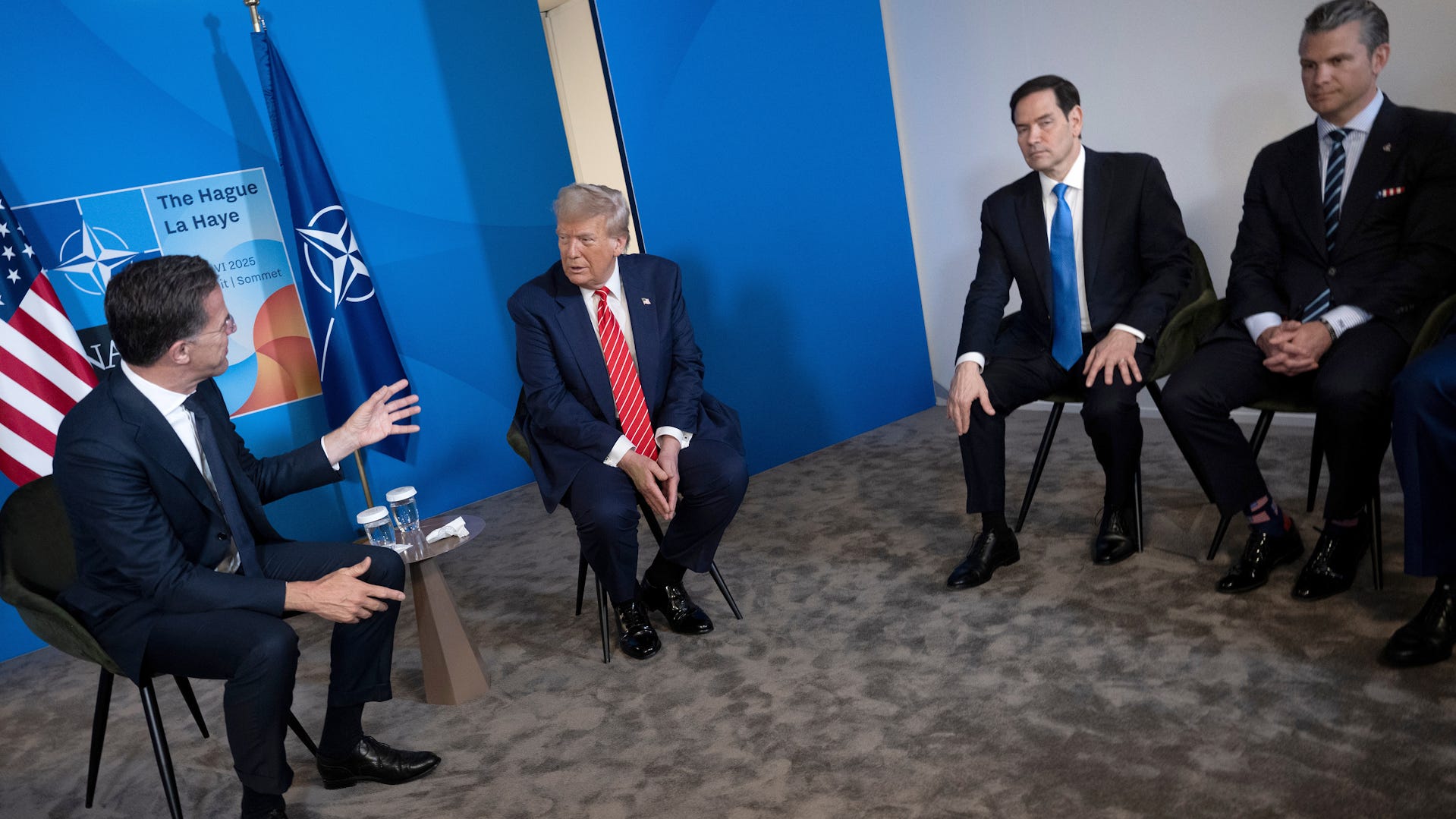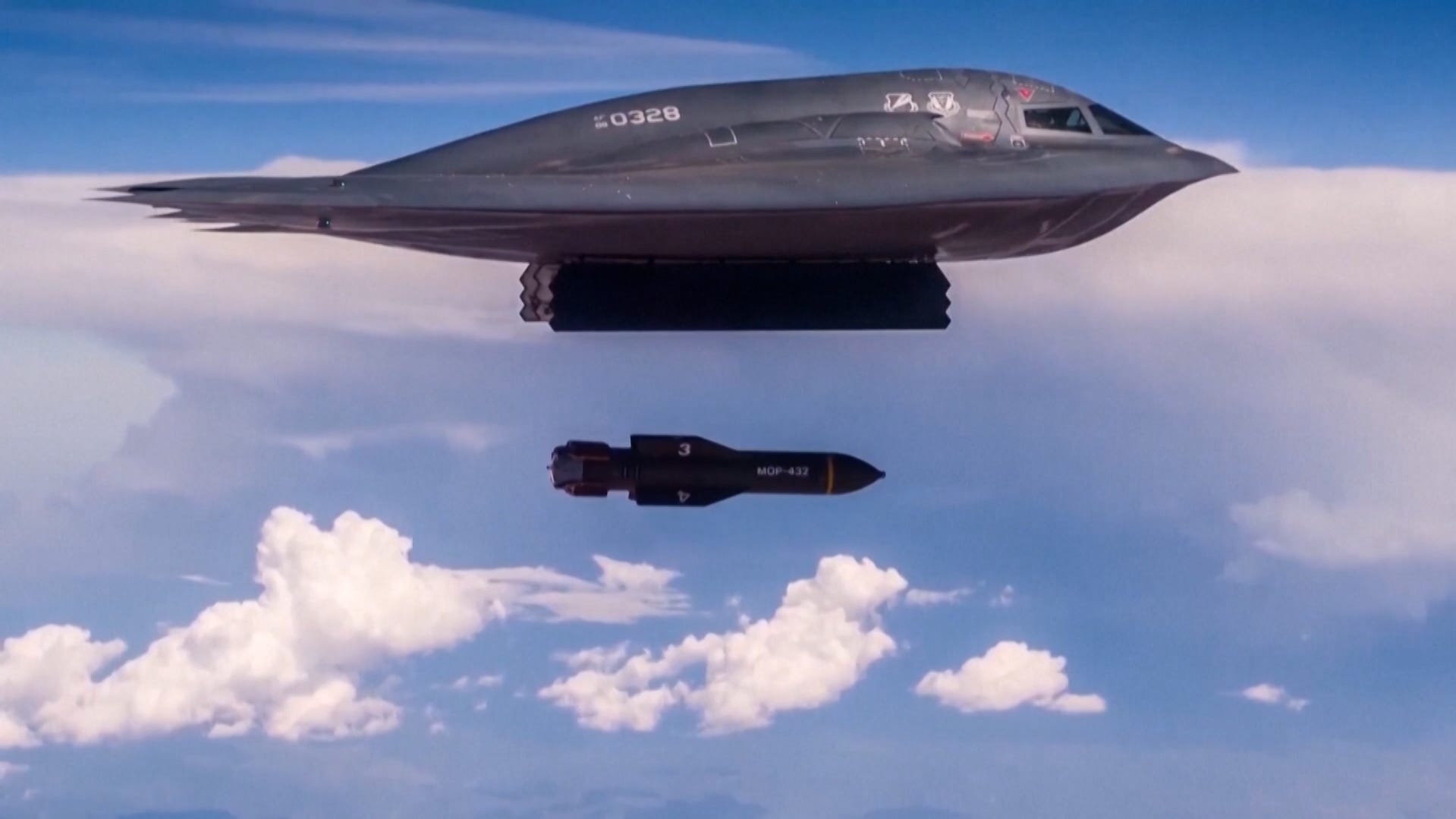US strikes set Iran's nuclear program back a few months, Pentagon assessment says
Defense Secretary Pete Hegseth denied the report, saying U.S. bombs "obliterated Iran’s ability to create nuclear weapons."

WASHINGTON − A preliminary Pentagon intelligence assessment has found the U.S. strikes on three Iranian nuclear facilities set back Iran's nuclear program by a few months, according to a U.S. government source familiar with the intelligence findings.
Early evidence has shown the bombing did not reach depths necessary to destroy the facilities, which are buried deeply underground, according to a second U.S. official.
The June 21 airstrikes by U.S. Air Force B-2 stealth bombers used the military’s most powerful conventional weapon, the GBU-57 bunker buster. The 30,000-pound bombs burrow deep into the earth before exploding.
However, initial assessments show that they did not reach depths to destroy Iran’s nuclear capability completely, said another U.S. official familiar with the intelligence but not authorized to speak publicly.
A third U.S. official confirmed the findings in the Defence Intelligence Agency report, which was first reported by CNN.
Some members of Congress have seen the DIA assessment.
Asked about the assessment, the Pentagon shared a statement from Defense Secretary Pete Hegseth refuting its findings.
"Based on everything we have seen – and I’ve seen it all – our bombing campaign obliterated Iran’s ability to create nuclear weapons," Hegseth said.
"Our massive bombs hit exactly the right spot at each target – and worked perfectly," Hegseth said. "The impact of those bombs is buried under a mountain of rubble in Iran; so anyone who says the bombs were not devastating is just trying to undermine the President and the successful mission."
White House press secretary Karoline Leavitt called the assessment "flat-out wrong" in a statement posted to X.
"Everyone knows what happens when you drop fourteen 30,000 pound bombs perfectly on their targets: total obliteration."
In a White House address hours after the bombs were dropped on June 21, President Donald Trump claimed the strikes "obliterated" the three key nuclear facilities – Fordow, Natanz and Isfahan.
Hegseth told reporters the next morning that "Iran's nuclear ambitions have been obliterated."
Trump administration cancels classified Iran briefing
Democratic lawmakers said the White House canceled June 24 classified briefing for the House and Senate on Iran, lambasting the Trump administration for not keeping Congress in the loop.
The briefing would have included Director of National Intelligence Tulsi Gabbard, CIA Director John Ratcliffe, Gen. Dan Caine, the chairman of the Joint Chiefs of Staff, and other officials, according to a screenshot of the invitation shared on X by Rep. Jason Crow, D-C.O.
Senate Minority Leader Chuck Schumer, D-N.Y., said senators need "real information" and the attendance of cabinet members shouldn't hold that up.
"Probably not a coincidence Trump cancelled the Senate classified briefing for this afternoon," Sen. Chris Murphy, D-Conn., said on X.
Rep. Pat Ryan, D-N.Y., a former combat veteran and West Point graduate, accused the Trump administration of canceling the briefing because Trump did not want it known how overblown his claims were about the U.S. bombings of Tehran’s uranium enrichment facilities.
"Trump just cancelled a classified House briefing on the Iran strikes with zero explanation,” Ryan said in a string of posts on X.
What do the intelligence reports show?

Democratic Senators Tim Kaine and Mark Kelly told Paste BN they viewed the classified intelligence report on the Iran strike June 24 in a Sensitive Compartmented Information Facility (SCIF).
They declined to discuss the details of the report, but Kelly said that “I take the intelligence that we get from our intelligence agencies as credible.”
Intelligence assessments are “not always perfect” and can change, Kelly added, but “they spend a lot of time and effort in trying to provide us with unvarnished information.”
Kelly said the bombed sites are “degraded” but pushed back on Trump’s comment in a televised address that the bombed sites are “completely and totally obliterated."
“I will say that’s not the case,” Kelly said.
Kelly noted the bunker buster bomb had never been used before and that the Fordow site is “deeply buried.”
“There’s rock, there’s dirt, there’s concrete,” he said. “Hard to take out things like that underground.”
Sen. Ron Johnson, R-Wisconsin, told Paste BN that he hopes it’s “incorrect” that the bombed sites weren’t destroyed, but if the intelligence report is correct it doesn’t change his opinion of the mission.
“It probably raises questions of what further actions are going to have to be taken to deny them that capability,” Johnson said, adding if the facilities remain intact he’d support additional action.
Sen. Rick Scott, R-Florida, said he was at the White House June 23 and spoke to Secretary of State Marco Rubio.
“They’re very comfortable they destroyed Fordow and the other one,” Scott said, adding: “I’m very appreciative of what the president did. Here’s a guy that was willing to make a tough choice to try to preserve our freedoms.”